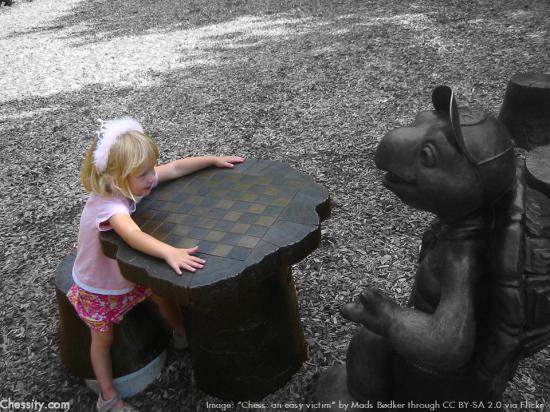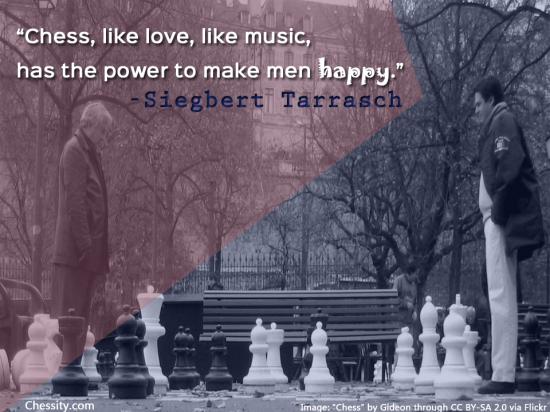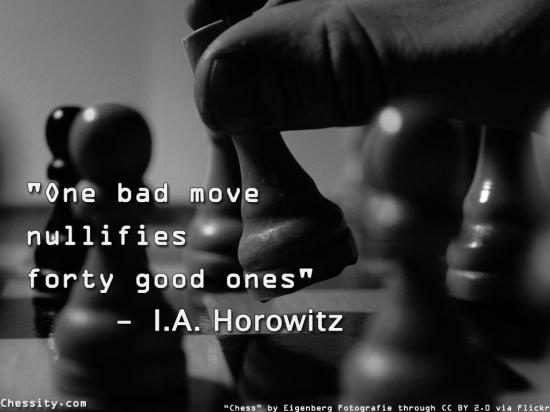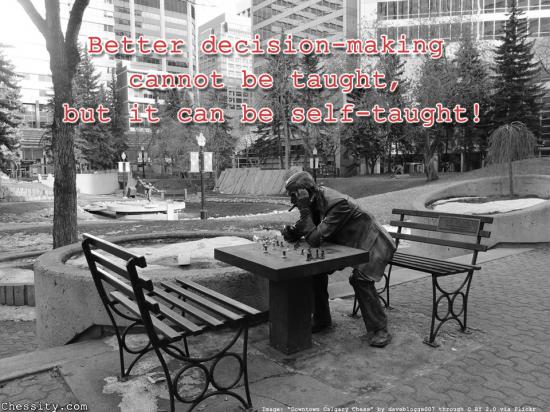Chess has long been the game of gentleman, geniuses, philanthropists
and other gifted people. This has formed an incredibly wide
misconception around the word that ONLY geniuses and gifted people can
play the game and it is strictly designed for them.
If someone was asked to name the first things that come to their mind when they hear ‘chess player’, it would be ‘old’, ‘smart’, ‘talented’, ‘genius’ and many other things unrelated to everyday people… But once again, this is a misconception – it is a false belief injected to people by mass media.
If someone was asked to name the first things that come to their mind when they hear ‘chess player’, it would be ‘old’, ‘smart’, ‘talented’, ‘genius’ and many other things unrelated to everyday people… But once again, this is a misconception – it is a false belief injected to people by mass media.
The reality of chess is different – it actually is an incredibly
beneficial pastime, because playing chess results in better brain
function, improved memory and cognitive abilities, strategic thinking
and attention improvement. All of these benefits are directly related to
the practice of chess, both in real-life and virtual environments,
which means that chess is the answer to the question – ‘Is there a game
where I can have fun AND get benefits from?’
Let’s look at some of those benefits in more detail:
• Better Brain Function: the brain is remarkable – it is responsible for our mental performance and it is the most crucial organ in the human body. When the brain has no stimulation, the cells inside slowly die, it’s an example of "if you don't use it, you lose it” moto, however, chess is a tool which gives users a rigorous mental workout. Let’s look at a quick example: to get the most benefit from a physical workout, you need to exercise both the left and right sides of your body. Studies show that in order to play chess well, a player must develop and utilize his or her brain’s left hemisphere, which deals with object recognition, as well as the right hemisphere, which deals with pattern recognition. Over time, thanks to the rules and techniques involved in the game, playing chess will effectively exercise and develop not one but both sides of your brain. Scientists also claim that playing chess can improve mental age by up to 14 years. How’s that for a workout?

• Improved Memory: scientists have shown that chess
helps keep Alzheimer's disease at bay, which is directly related to the
loss of memory. There are many tactics and strategies in chess and a
good player should know most of them, but it is not the case of sitting
and learning the tactics by heart. Over the course of many games,
players develop an almost natural feeling of when to use a certain
strategy or tactic – this is where the benefits of improved memory shine
– players can quickly remember and use different strategies or tactics.
The best part is that this benefit is not only limited to chess –
improved memory can be noticed in other areas of life such as academic
performance, responsibilities, commitments, etc.

• Improved Cognitive Abilities: Cognitive ability is
a very broad term, it includes perception, motor, language, visual and
spatial processing and executive functions. This is a big list and it
covers almost everything that you do. For example with executive
function you can immediately recognize that the thing in front of you is
square shaped and not round. While playing chess, EACH cognitive
ability is stimulated because the game covers every part of our actions.
So the next time you see chess players playing, think about the
‘exercise’ they’re going through.

• Strategic Thinking: Chess is considered to be a
strategy game – this means that in order to win, you must have a better
plan of action than your opponent. But no one is born with the ability
to conceive great strategic moves, it must be learned by practicing. To
most people, strategy is associated with war and army generals planning
their attacks with strategic moves, this example is not far from chess.
Just like a general commands his army, a chess player commands his or
her own pieces in a battle of black and white. So playing chess greatly
improves the ability to develop certain strategies and plans. And no,
this benefit is not only useful to army generals and chess players – a
good strategic mind is much more productive, because it creates the best
plan of action for every daily task. Also, strategic thinking is a life
savior in academic and work environments, because everything is planned
one step ahead and there’s always a plan B.

• Attention Improvement: the epidemic of the 21st
century is ADHD. Adults and children alike are finding it harder and
harder to focus at school and work, less is being done and productivity
declines rapidly. With so many distractions, it is easy to diagnose
yourself with attention deficit disorder, but there are better ways of
dealing with this phenomena than heading to your local drugstore. Chess
DEMANDS attention, in other words, if your mind is not focused on the
game – you lose, simple as that. With such an immediate punishment for
lack of attention, the mind is trained to be focused and attentive. This
results in better performance in schools and workplaces, less time
wasted and more victories achieved.

Now that you know the truth about chess it should be more than enough motivation to go and win yourself a match or two. There is a huge community of fellow chess players and coaches waiting for you at Chessity.com, where the attitude of ‘gaming your training’ is breaking new grounds.
Link: http://www.chessity.com/blog/431/The_Benefits_of_Chess#.Vp6ym-AawXo.facebook
in www.chessity.com









Sem comentários:
Enviar um comentário